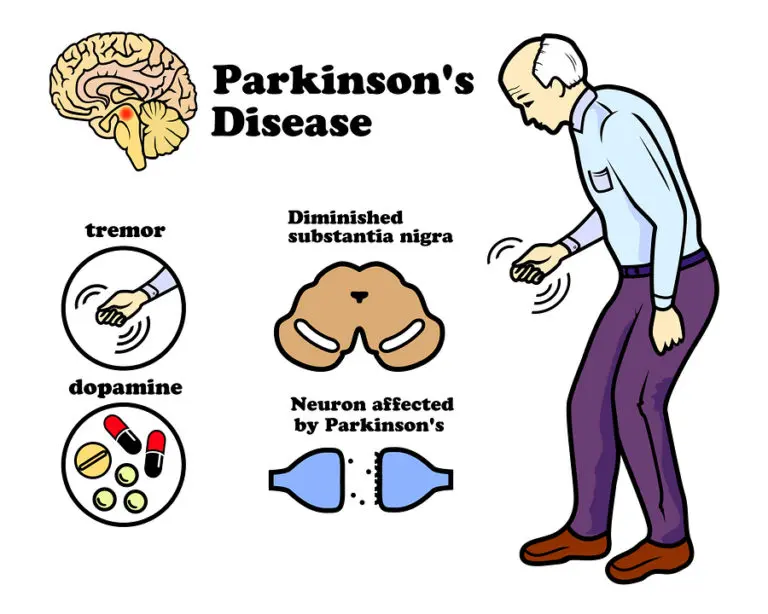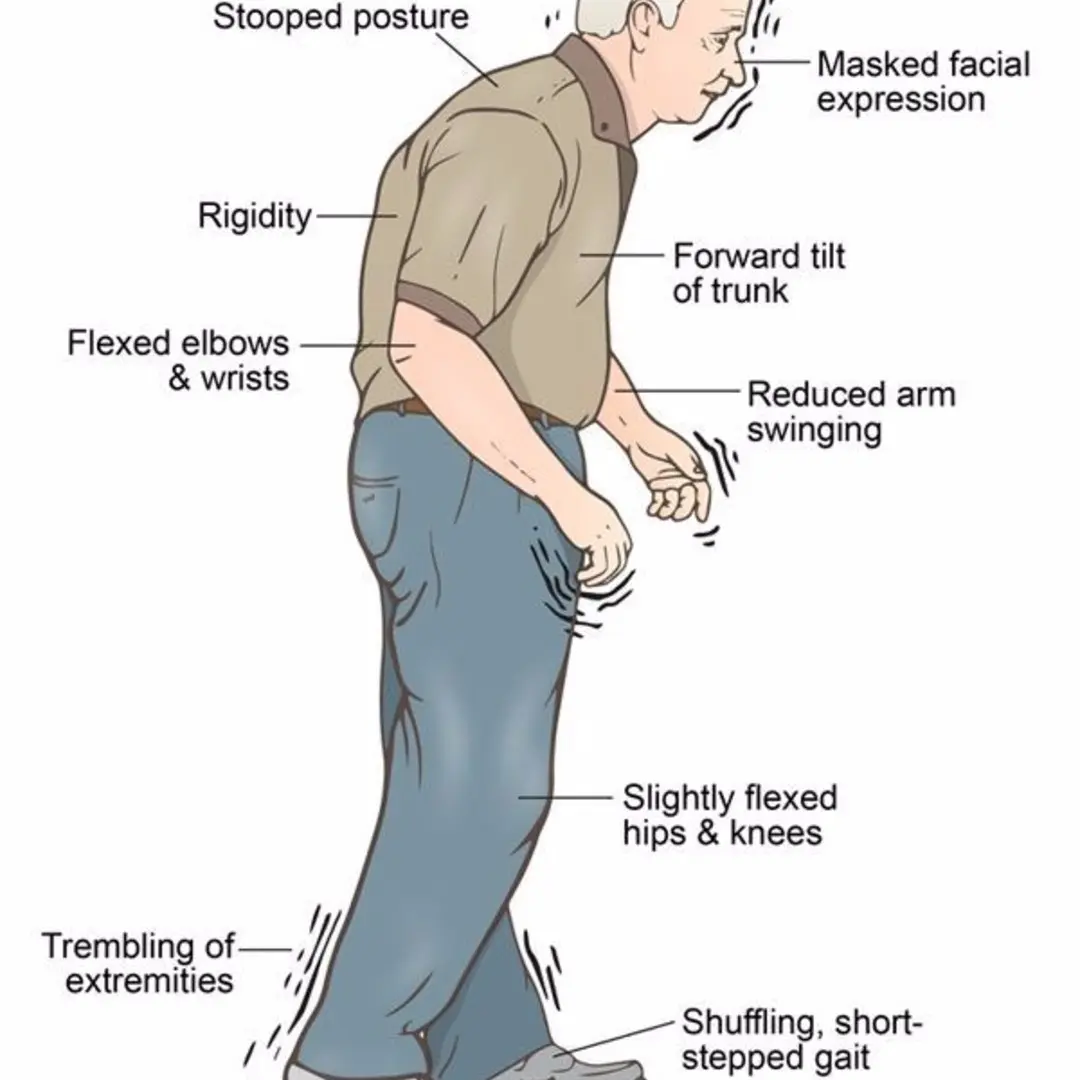Can Parkinson’s Disease be Cured?
No (but manageable)
No cure; management focuses on symptom control, improving quality of life

What is Parkinson’s Disease?
Parkinson’s disease is a progressive neurodegenerative disorder that affects movement. Symptoms include tremors, bradykinesia (slowness of movement), and stiffness. Treatment may involve medications, physical therapy, and in some cases, surgical interventions like deep brain stimulation. Ongoing monitoring is essential to manage symptoms and adjust treatment as needed.

Clinical Aspects

Characteristics
Neurodegenerative disorder affecting movement

Symptoms
Tremors, stiffness, difficulty in balance and coordination

Diagnosis
Clinical evaluation, sometimes imaging

Prognosis
Variable, often progressive

Complications
Motor symptoms, potential for complications
Etiology and Treatment

Causes
Loss of dopamine-producing cells in the brain

Treatments
Medications (levodopa, dopamine agonists), deep brain stimulation

Prevention
Medications (levodopa, dopamine agonists), deep brain stimulation
Public Health and Patient Perspectives

Epidemiology
Common in older adults

Patient Perspectives
Lifelong management tailored to symptoms
This information serves as a general overview and does not constitute professional medical advice. Always consult with healthcare providers for accurate and personalized insights regarding your health.
Share: